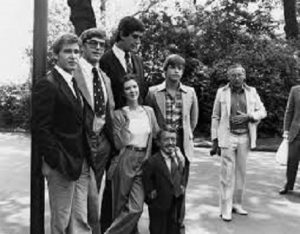The Matrix (1999, USA) offered alternative universe/futuristic science fiction, but bring it down to earth.
Movies naturally point to something about our world, even in the most obscure movies.
In The Matrix, the ideas about our world may be, as I understand The Matrix, is to free yourself from the authoritarian controls of the world. Find your voice and be free in it.
It’s on one hand a dangerous message to anyone bent on doing harm. On the other hand it is a liberating message, if someone is searching for answers in life and where does one find it.
The answers may come to you, and send you on your journey. But in The Matrix the alternative to the world isn’t that colorful.
Computer hacker cum office worker Thomas Anderson (Keanu Reeves) exits our world to enter the better world that has been hidden from him for so long. It’s described as being in ‘wonderland’.
However, his first taste of this better world is when he enters a space craft called the Nebuchadnezzar, which is a reference to the Babylonian king.
Far from being wonderland, entering the ship is slightly depressing. The food is spare, the ship’s interior gloomy and greyish, and the clothing of the ship’s crew colorless.
King Nebuchadnezzar captured the Israelites–if the ship Nebuchadnezzar is a metaphor for a chosen people in exile, it’s a people by the rivers of Babylon. “There we wept,” continues the Israelite psalm, which was turned into a Boney M song in the 1970’s.
The new world Anderson has entered is under upheaval with machines aiming to keep the ‘chosen people’ from the city of Zion.
Another downer.
In The Matrix, the better world is still several steps away, but on the brink of finding, just beyond the horizon, but getting closer.
In The Matrix, the search continues.
Warnings—profanity and medium level violence (including shooting)
Keanu Reeves (Thomas Anderson/Neo), Laurence Fishburne (Morpheus), Carrie-Anne Moss (Trinity), Hugo Weaving (Agent Smith), Joe Pantoliano (Cypher)
The Wachowski Brothers (Writers and directors)

